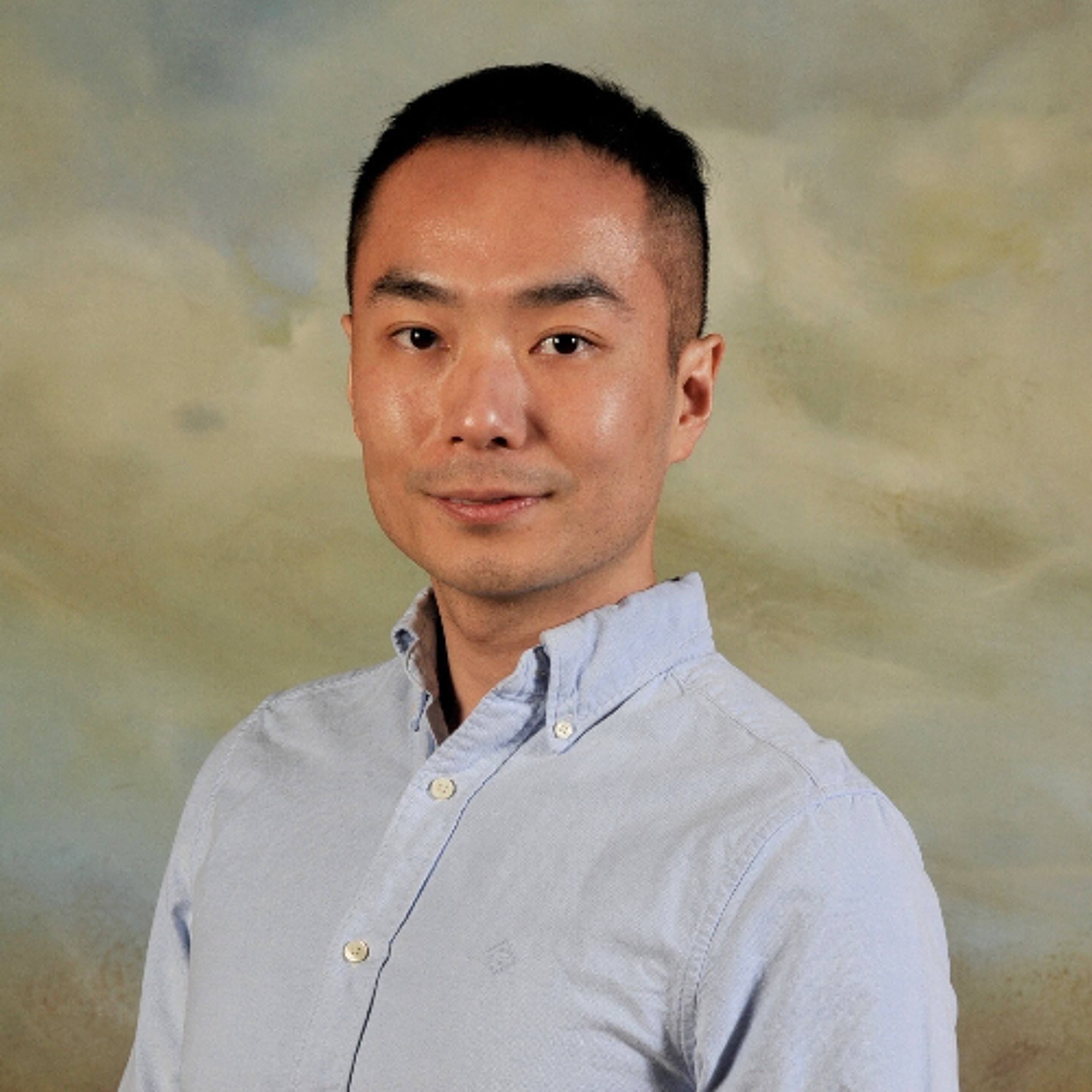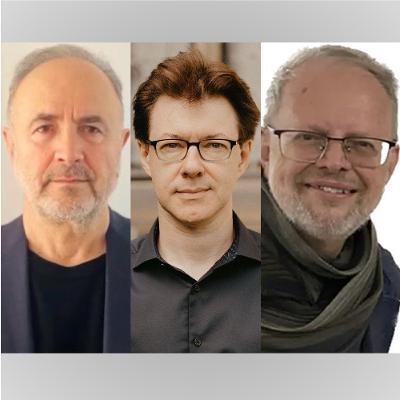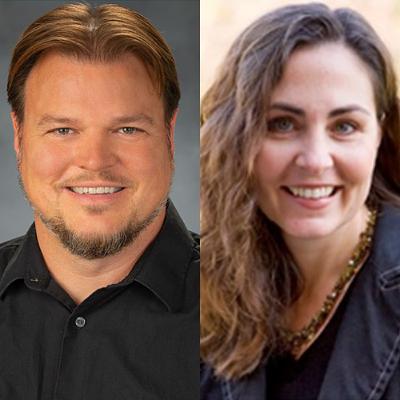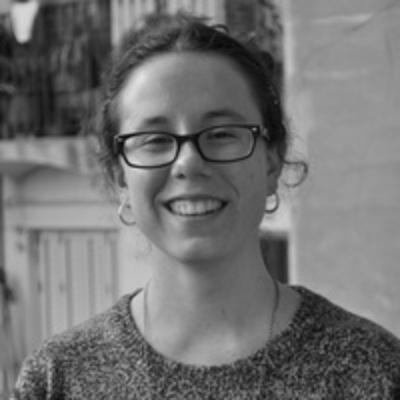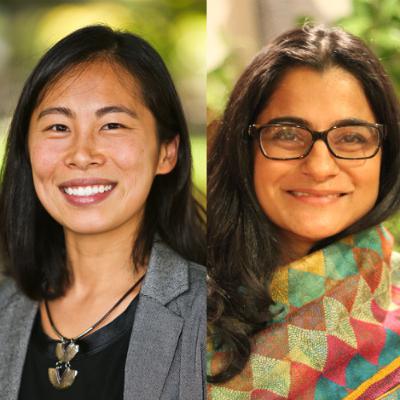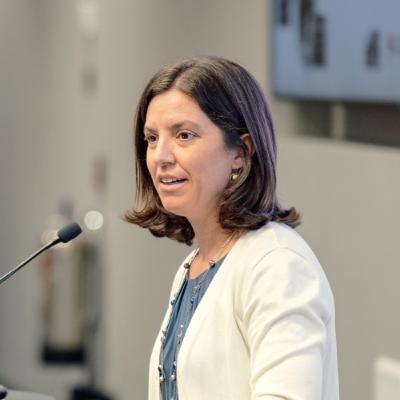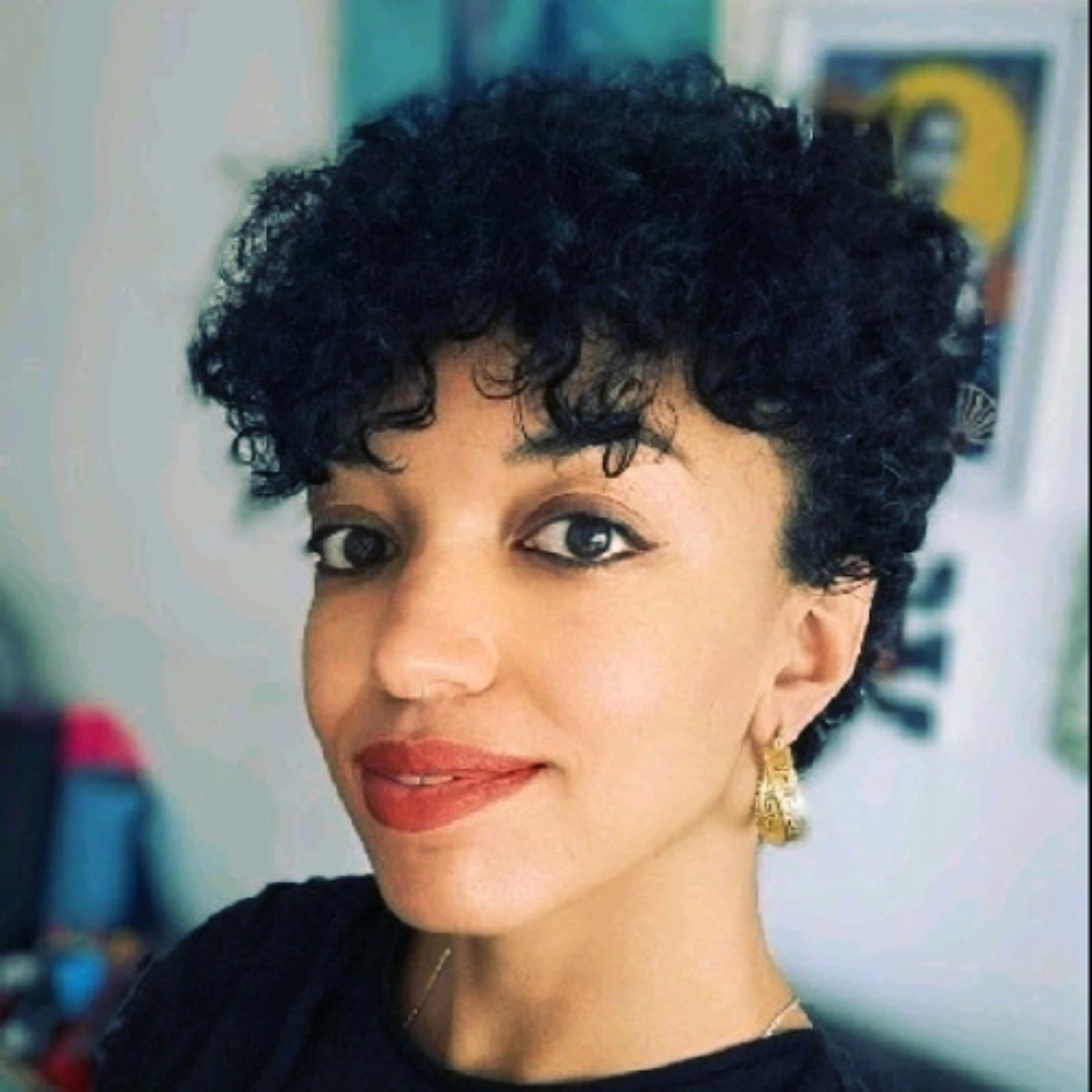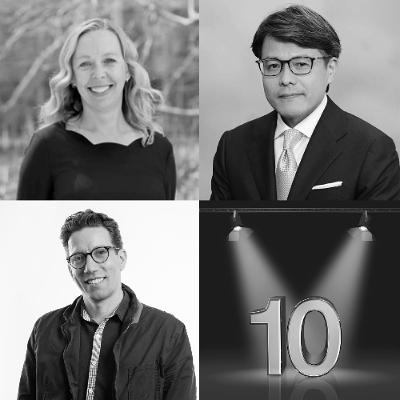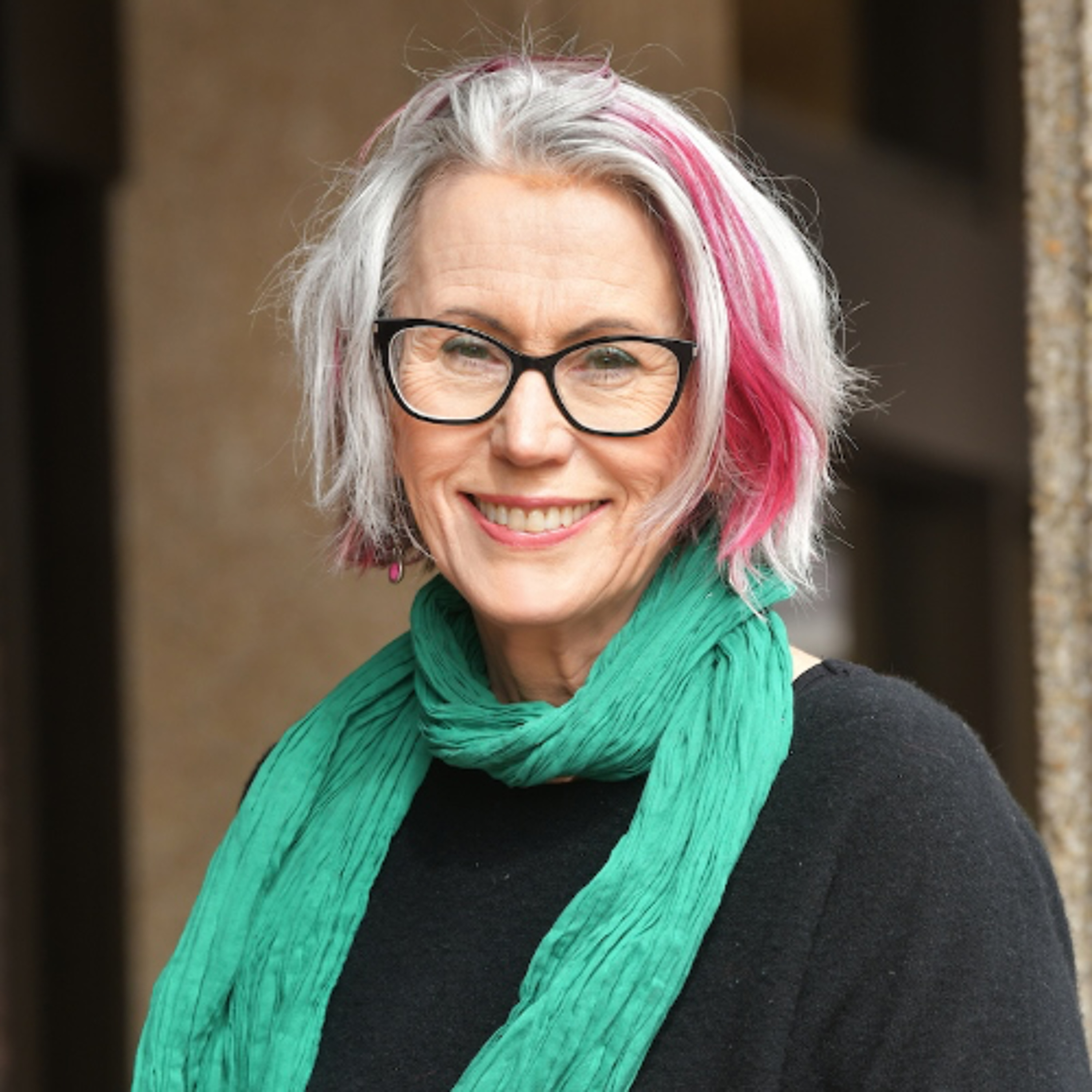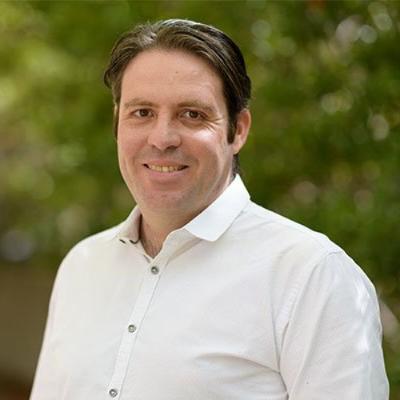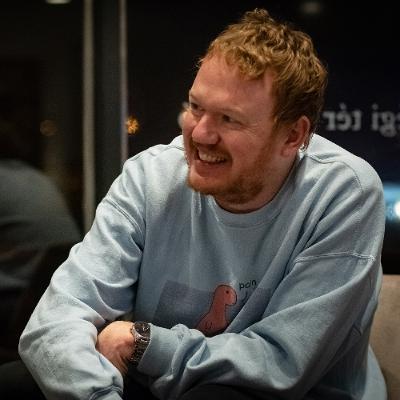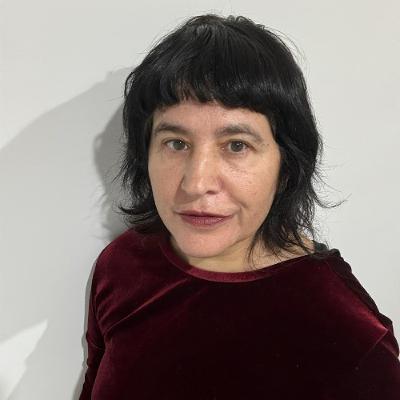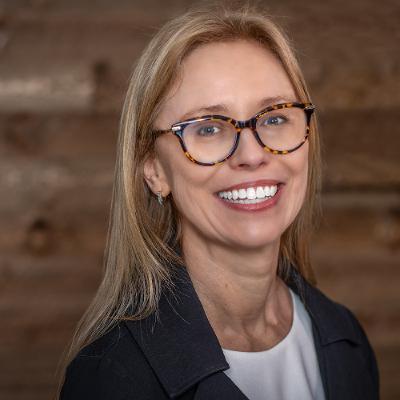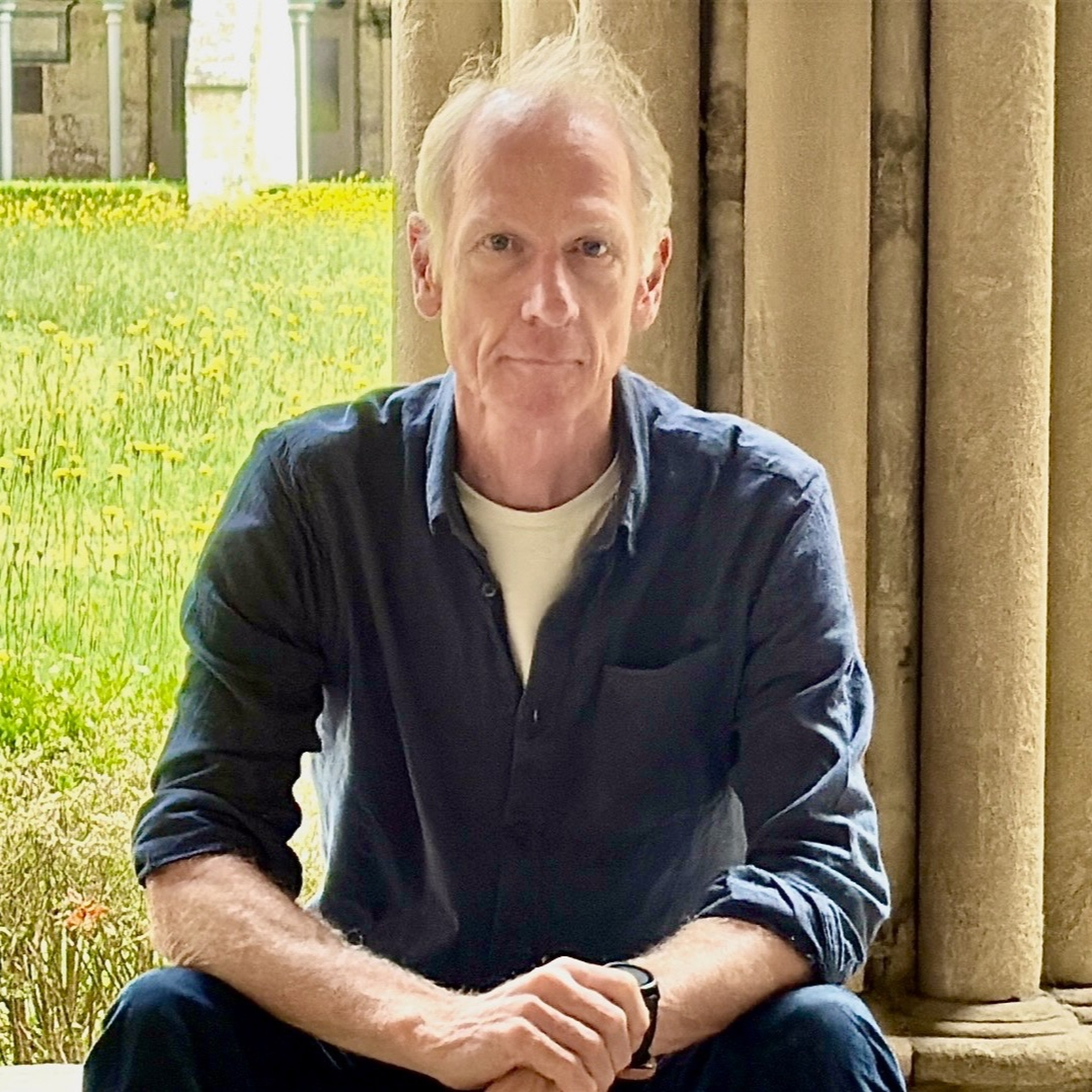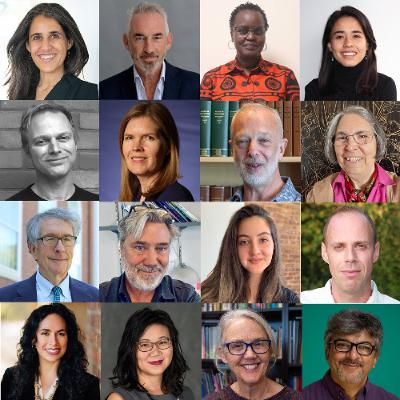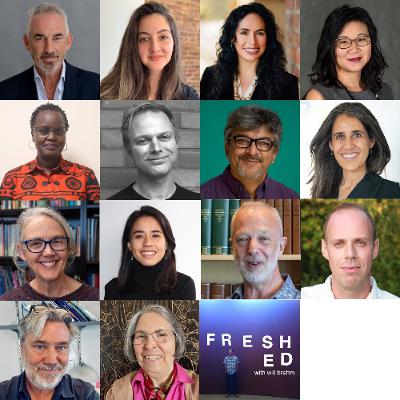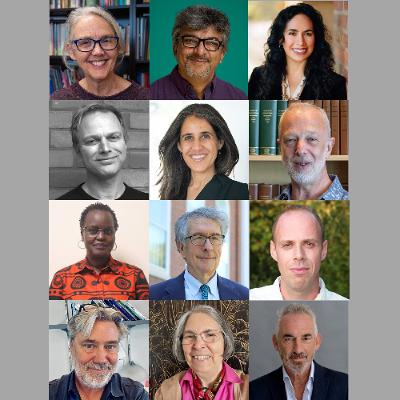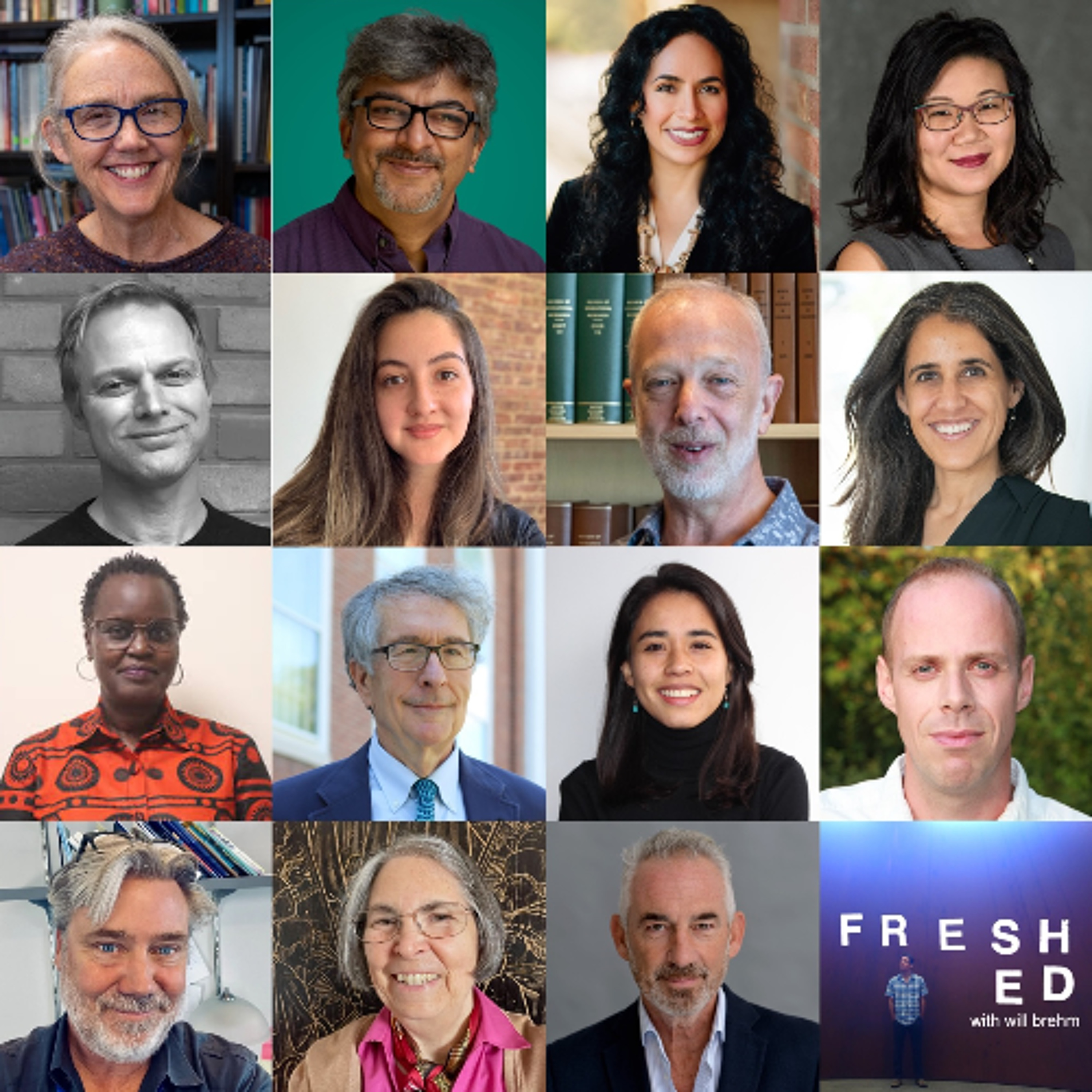Discover FreshEd
FreshEd

FreshEd
Author: FreshEd with Will Brehm
Subscribed: 200Played: 8,033Subscribe
Share
© All rights reserved
Description
FreshEd is a weekly podcast that makes complex ideas in educational research easily understood. Five shows. Three languages.
Airs Monday.
Visit us at www.FreshEdpodcast.com
Twitter: @FreshEdPodcast
All FreshEd Podcasts are licensed under a Creative Commons Attribution-NonCommercial-ShareAlike 4.0 International License.
Airs Monday.
Visit us at www.FreshEdpodcast.com
Twitter: @FreshEdPodcast
All FreshEd Podcasts are licensed under a Creative Commons Attribution-NonCommercial-ShareAlike 4.0 International License.
529 Episodes
Reverse
Today we unpack the Chinese term minjian and conceptualize it for the field of comparative education. My guest is Baiwen Peng.
Baiwen Peng is a doctoral student in the College of Education and Human Development at the University of Minnesota. His new article is “Minjian: exploring education ‘among the people’ in China,” which was published in Comparative Education.
freshedpodcast.com/peng/
--
Get in touch!
Twitter: @FreshEdpodcast
Facebook: FreshEd
Email: info@freshedpodcast.com
Today we unpack the education experiences of students from the former Soviet Union who have migrated to Canada. My guests are Sarfaroz Niyozov, Stephen Bahry and Max Antony-Newman. For the past few years, they have been working on a research project that has explored the experiences of the high school children with post-Soviet backgrounds in the Greater Toronto Area. The research project strives to improve the education experiences of this under-researched, often misunderstood group of Canadian youth, their parents, and communities who come from the countries of the former Soviet Union.
Sarfaroz Niyozov is an Associate Professor in Curriculum, Teaching and Learning at the Ontario Institute for Studies in Education at the University of Toronto, where Stephen Bahry is a sessional lecturer. Max Antony-Newman is a lecturer in education at the university of Glasgow. Various articles from their research project will soon published. You can follow the link to their project website to find them.
--
freshedpodcast.com/niyozov-bahry-antony-newman/
--
Get in touch!
Twitter: @FreshEdpodcast
Facebook: FreshEd
Email: info@freshedpodcast.com
Before we start today’s show, I’d like to welcome our newest FreshEd Members, Amy Stambach and Tian Renxiang. Thank you for your support.
If you think FreshEd is a valuable educational resource and want to join our growing community, sign up at FreshEdpodcast.com.
--
Today we unpack education alternatives to reimagine education for just futures. My guests are Frank Adamson and Carol Anne Spreen.
Frank Adamson is associate professor of education leadership and policy studies at California State University, Sacramento. Carol Anne Spreen is a professor of international education at New York University. They were on the co-editorial team of the NORRAG Special Issue entitled “Education for Societal Transformation: Alternatives for a Just Future” and members of The Alternative Project, which I should mention I was a part of at its inception.
--
freshedpodcast.com/adamson-spreen/
--
Get in touch!
Twitter: @FreshEdpodcast
Facebook: FreshEd
Email: info@freshedpodcast.com
Today we explore the production of global learning metrics inside the UNESCO Institute for Statistics. My guest is Clara Fontdevila, a British Academy Postdoctoral Fellow at the School of Education at the University of Glasgow.
Clara’s newest article is entitled “The politics of good enough data. Developments, dilemmas, and deadlocks in the production of global learning metrics,” which was published in the International Journal of Educational Development.
Today’s episode was recorded in front of a live audience at the School of Education at the University of Glasgow. Thanks to Matthew Thomas for organizing the event.
Citation: Fontdevila, Clara, interview with Will Brehm, FreshEd, 318, podcast audio, April 24, 2023.https://freshedpodcast.com/fontdevila/
--
Get in touch!
Twitter: @FreshEdpodcast
Facebook: FreshEd
Email: info@freshedpodcast.com
Support FreshEd: www.freshedpodcast.com/donate
Thanks for listening to FreshEd. It’s rewarding to produce for the thousands of listeners around the world. But it takes a lot of work to make regular episodes. What sustains our effort are voluntary memberships from paying supporters. If you are enjoying FreshEd and would like to join our membership community, please sign up at www.freshedpodcast.com.
--
Today we take stock of climate education, its past and its future. With me are Christina Kwauk and Radhika Iyengar, who have recently co-edited the book, Curriculum and Learning for Climate Action: Toward an SDG 4.7 Roadmap for Systems Change. They argue that COP26 has been disappointing in terms of education and climate action, and encourage everyone to focus on local action and change.
Christina Kwauk is the Research Director at Unbounded Associates and a non-resident fellow at the Brookings Institute. Radhika Iyengar is Director of Education at the Center for Sustainable Development, Earth Institute, Columbia University.
Citation: Kwauk, Christina, and Iyengar, Radhika interview with Will Brehm, FreshEd, 262, podcast audio, November 15, 2021. https://freshedpodcast.com/kwauk-iyengar/
--
Get in touch!
Twitter: @FreshEdpodcast
Facebook: FreshEd
Email: info@freshedpodcast.com
Today we explore foundational learning in low and middle income countries. My guest is Michelle Kaffenberger.
Michelle Kaffenberger is the Director of evidence translation at the What Works Hub for Global Education the University of Oxford. I Spoke with her on the sidelines of the Development and Education Conference (DevEd) held in Melbourne, Australia last week.
https://freshedpodcast.com/kaffenberger/
--
Get in touch!
Twitter: @FreshEdpodcast
Facebook: FreshEd
Email: info@freshedpodcast.com
Today we dive into the field of education in emergencies, highlighting its entanglements with colonialism, empire, and racial capitalism. My guest is Jess Oddy.
Jess Oddy is a researcher at the university of Bristol and has worked in various capacities in the field of education in emergencies. Her new article is “Retelling education in emergencies through the black radical tradition: on racial capitalism critical race theory and fugitivity,” which was published in Globalisation, Societies and Education.
Citation: Oddy, Jess with Will Brehm, FreshEd, 344, podcast audio, March 4, 2024. https://freshedpodcast.com/oddy/
--
Get in touch!
Twitter: @FreshEdpodcast
Facebook: FreshEd
Email: info@freshedpodcast.com
Ten years ago, on October 26, 2015, something special began in Japan. While working at the University of Tokyo, I launched the first episode of the FreshEd podcast, marking the start of what would become a cornerstone of conversations in comparative and international education.
Over the past decade, FreshEd has grown into a global platform – far larger than I ever imaged -- connecting listeners interested in education, equity, and social change. We’ve made over 400 episodes in that time. We’ve counted 200 universities that use our content and we have listeners, like you, in over 180 countries.
To celebrate our anniversary, we held a live event at Tohoku University in Sendai, Japan as part of the 2025 International Education Development Forum. I’ve like to thank Dr. Jing Liu for co-organizing this event.
Joining me on stage were Professors Iveta Silova and Yuto Kitamura, who are both board members of FreshEd. In our conversation, we take you behind the scenes of FreshEd’s development and reflect on what the podcast means for the wider field specifically and higher education generally. On a personal note, Iveta and Yuto are both mentors who have shaped my own career as an academic. So today we’ll air the conversation we had in Tohoku on October 18. I hope you enjoy the show and here’s to the second decade of FreshEd.
https://freshedpodcast.com/10years/
--
Get in touch!
Twitter: @FreshEdpodcast
Facebook: FreshEd
Email: info@freshedpodcast.com
Today we unpack the trend of micro-credentials in universities. My guest is Leesa Wheelahan who connects micro-credentials to the gig economy and discusses their implications for higher education credentials and qualifications.
Leesa Wheelahan is professor emerita at the Ontario Institute for Studies in Education at the University of Toronto. She is also an honorary research fellow at the Department of Education at the University of Oxford and a Honorary Senior Fellow in the Centre for the Study of Higher Education at the University of Melbourne.
She’s recently co-written with Gavin Moodie two articles: Gig Qualifications for the Gig Economy: Micro-credentials and the hungry mile and Revisiting Credentialism – Why qualifications matter: A theoretical exploration.
https://freshedpodcast.com/leesa-wheelahan/
--
Get in touch!
Twitter: @FreshEdpodcast
Facebook: FreshEd
Email: info@freshedpodcast.com
Today we explore the financialization of early childhood education and what it means for the welfare state. My guest is Ben Spies-Butcher.
Ben Spies Butcher is an Associate Professor in the School of Communication, Society and Culture at Macquarie University. His latest book Politics, Inequality and the Australian Welfare State after Liberalisation.
freshedpodcast.com/spies-butcher
--
Get in touch!
Twitter: @FreshEdpodcast
Facebook: FreshEd
Email: info@freshedpodcast.com
FreshEd is celebrating its 10th birthday on October 18 and you're invited! Sign up here: https://freshedpodcast.com/10years/
--
Today we explore scholarly podcasting: what it is and why it matters. With me is Ian M. Cook, who has recently published the book Scholarly Podcasting: Why, What, How?
Ian M. Cook is Editor and Chief at Allegra Lab. He is an anthropologist whose work focus includes urban India, scholarly podcasting, open education, and environmental (in)justice.
Correction: In the episode, we say we will play a clip from Vincent Racaniello but the clip played is actually from Michael Bossetta.
Today we explore tax cuts as a form of government expenditure and what that means for social inequality, politics, and government services. My guest is Melinda Cooper.
Melinda Cooper is a professor in the School of Sociology in the Colelge of Arts & Social Sciences at the Australian National University. Her newest book is Counterrevolution: Extravagance and Austerity in Public Finance (Zone Books/Princeton University Press, 2024) . I spoke with Melinda in front of a live audience at the Manning Clark House in Canberra for the second part of an event called Taxing Times. I’d like to thank Claire Manning and Luciana Todd for organizing and hosting this event.
freshedpodcast.com/cooper
--
Get in touch!
Twitter: @FreshEdpodcast
Facebook: FreshEd
Email: info@freshedpodcast.com
Today we explore government taxes not as a technical, economic matter but rather as a political process that reflects social values. My guest is Elise Klein.
Elise Klein is an associate professor of public policy at the Crawford School at the Australian National University and the co-director of the Australian Basic Income Lab. I spoke with Elise in front of a live audience at the Manning Clark House in Canberra for an event called Taxing Times. I’d like to thank Claire Manning and Luciana Todd for organizing and hosting this event.
freshedpodcast.com/klein
--
Get in touch!
Twitter: @FreshEdpodcast
Facebook: FreshEd
Email: info@freshedpodcast.com
Today marks the 400th episode of FreshEd. That’s almost 10 years of work. It’s been an absolute privilege to make each episode. Sometimes I think I’m the luckiest person in academia because I get to talk about new ideas in education every week. Of course none of this would be possible without you, our listeners. So thanks for tuning in each week.
To mark this occasion, I wanted to spend time with another podcaster to talk about why we love podcasting so much. My guest is Sadie Ryan. Her podcast Accentricity was shortlisted for Best New Podcast at the British Podcast Awards and won the Steady International Media Award in 2019.
Sadie Ryan is a lecturer in Languages and Intercultural Studies in the School of Education at the University of Glasgow. She is founder and coordinator of the University of Glasgow Podcasting Collective.
freshedpodcast.com/ryan/
--
Get in touch!
Twitter: @FreshEdpodcast
Facebook: FreshEd
Email: info@freshedpodcast.com
Thanks for listening to FreshEd. It’s rewarding to produce for the thousands of listeners around the world. But it takes a lot of work to make regular episodes. What sustains our effort are voluntary memberships from paying supporters. If you are enjoying FreshEd and would like to join our membership community, please sign up at www.freshedpodcast.com. You can also sign up to join our 10th anniversary celebration on October 18.
--
Today we explore ed-tech philanthropy inside schools in South Africa. My guest is Amy Stambach. Amy Stambach is Professor of Anthropology and International Studies at the University of Wisconsin-Madison. Her new book is The Corporate Alibi: Capitalism and the Cultural Politics of US Investments in Africa, which was published by the University of California Press.
freshedpodcast.com/stambach/
--
Get in touch!
Twitter: @FreshEdpodcast
Facebook: FreshEd
Email: info@freshedpodcast.com
Today we dive into universities and their futures. For many people, universities are in crisis. Public funding has decreased. Mounting pressure to move online and offer complete flexibility to students. Job cuts. And whole courses and programs that are on the chopping block. My guest, Cris Shore, unpacks the state of universities and critically explores their futures.
Cris Shore is emeritus professor of anthropology at Goldsmiths, University of London. He’s recently published a book with Susan Wright called Audit Culture: How indicators and rankings are reshaping the world.
freshedpodcast.com/shore/
--
Get in touch!
Twitter: @FreshEdpodcast
Facebook: FreshEd
Email: info@freshedpodcast.com
FreshEd turns 10 in October! Join the celebration: www.freshedpodcast.com/10years
--
Today is the last installment for this year in our mini-series called the FreshEd Questionnaire. I’ve been asking guests a set of standard questions after each interview. These questions focus on some of the hottest topics in education today.
For today’s episode of the FreshEd Questionnaire we focus on future directions in research. I always love to hear where scholars think research should go in the future. There are so many opinions and ideas. I hope this will be valuable to PhD students or early career researchers looking for some inspiration. I asked a group of academics and researchers the following question: Where would you like to see education research go in the future?
Here's what they had to say.
Guests include: Rakesh Rajani, Lynn Paine, Laura Chávez-Moreno, Augustina Paglayan, Xavier Dumay, Daniela Romero, Tore Bernt Sorensen, Horward Gardner, Paula Mantilla-Blanco, Gustavo Fischman, Sara Ruto, Brad Olsen, Stephanie Kim, Tim Jackson, Katie Anderson-Levitt, and Garnett Russell.
freshedpodcast.com/397-questionnaire/
--
Get in touch!
Twitter: @FreshEdpodcast
Facebook: FreshEd
Email: info@freshedpodcast.com
FreshEd turns 10 in October! Join the celebration: www.freshedpodcast.com/10years
--
Today we continue our mini-series called the FreshEd Questionnaire. I’ve been asking guests a set of standard questions after each interview. These questions focus on some of the hottest topics in education today.
For the next instalment of the FreshEd Questionnaire we focus on online learning. It seems since Covid-19, universities around the world have embraced online learning. More recently, we hear talk of flexible learning. That is, giving students a choice in how they want to study-- either online, in person, or a bit of both. What does online and flexible learning mean for the university? For the quality of education? And for the very nature of learning itself? I asked a group of academics and researchers the following questions: What are your thoughts on universities embracing online/hybrid/flexible teaching?
Here's what they had to say.
Guests include: Rakesh Rajani, Lynn Paine, Laura Chávez-Moreno, Augustina Paglayan, Xavier Dumay, Daniela Romero, Tore Bernt Sorensen, Paula Mantilla-Blanco, Gustavo Fischman, Sara Ruto, Brad Olsen, Stephanie Kim, Tim Jackson, and Katie Anderson-Levitt
freshedpodcast.com/396-questionnaire/
--
Get in touch!
Twitter: @FreshEdpodcast
Facebook: FreshEd
Email: info@freshedpodcast.com
Today we continue our mini-series called the FreshEd Questionnaire. I’ve been asking guests a set of standard questions after each interview. These questions focus on some of the hottest topics in education today.
For the next instalment of the FreshEd Questionnaire we focus on the value of enrolling into a PhD program. Is investing years of your life to purse a PhD worth it? While many of our guests find personal fulfilment in doctoral journeys, they're also brutally honest about the structural problems plaguing higher education today: exploitative funding models, unsustainable debt loads, and academic job markets that have fundamentally shifted. We dig into these issues and explore the tension between the intellectual rewards of doctoral study and the harsh economic realities that make the PhD increasingly inaccessible.
Guests include: Rakesh Rajani, Lynn Paine, Laura Chávez-Moreno, Augustina Paglayan, Xavier Dumay, Tore Bernt Sorensen, Horward Gardner, Gustavo Fischman, Sara Ruto, Brad Olsen, Tim Jackson, and Katie Anderson-Levitt.
https://freshedpodcast.com/395-questionnaire/
--
Get in touch!
Twitter: @FreshEdpodcast
Facebook: FreshEd
Email: info@freshedpodcast.com
Today we continue our mini-series called the FreshEd Questionnaire. I’ve been asking guests a set of standard questions after each interview. These questions focus on some of the hottest topics in education in today. For the next few weeks, we’ll mash up the answers to each question and put them into single episodes.
For today’s episode we focus on Artificial Intelligence. It seems every day I read a new article on how AI is transforming teaching, learning, and research. The college essay is dead, I hear. So too is peer review. I hear edtech gurus shouting that the very purpose of higher education is undermined when GenAI can be a tutor, therapist, research assistant, and writer all in one. So, I wanted to find out from academics and researchers themselves what they think. I asked the following question: how are you managing Generative AI in your research and teaching? Here’s what they had to say.
Guests include: Rakesh Rajani, Lynn Paine, Laura Chávez-Moreno, Augustina Paglayan, Xavier Dumay, Daniela Romero, Tore Bernt Sorensen, Horward Gardner, Paula Mantilla-Blanco, Gustavo Fischman, Sara Ruto, Brad Olsen, Stephanie Kim, Tim Jackson, and Katie Anderson-Levitt.
https://freshedpodcast.com/394-questionnaire/
--
Get in touch!
Twitter: @FreshEdpodcast
Facebook: FreshEd
Email: info@freshedpodcast.com


